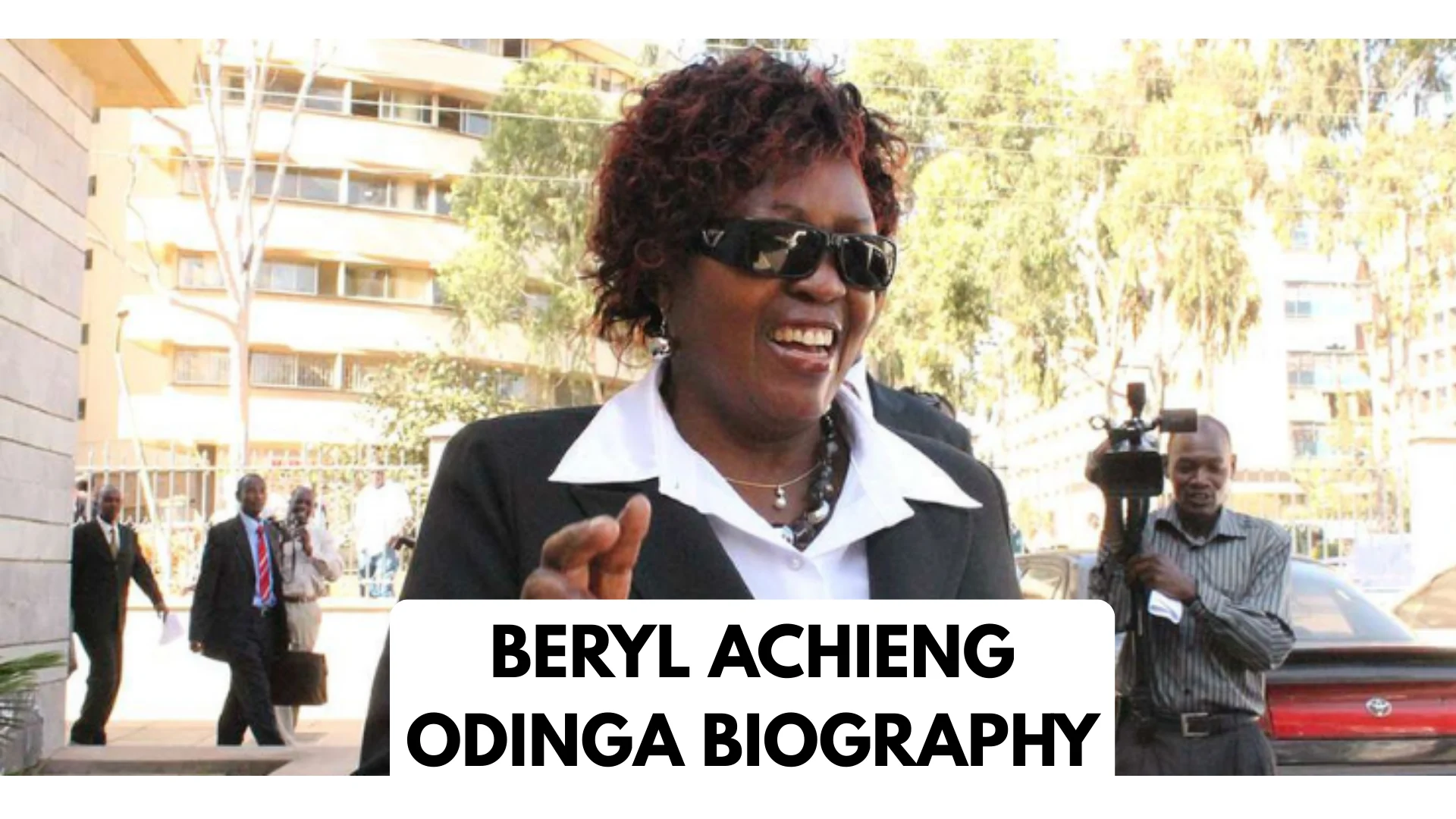
Beryl Achieng Odinga lived a life defined by professionalism, public service, and quiet influence — all while being part of one of Kenya’s most prominent political families.
Although she maintained a low public profile compared to some of her famous relatives, her contributions to education, public administration, and corporate governance made her an important figure in East African civic life.
Beryl is especially remembered for her historic role as the first Black Town Clerk of Mutare, Zimbabwe, a milestone that cemented her legacy beyond Kenyan borders.
This article covers her early life, family background, career history, death, achievements, and frequently asked questions.
Early Life & Family Background
Beryl Achieng Odinga was born into the influential Odinga family, the daughter of Jaramogi Oginga Odinga, Kenya’s first Vice President, and Mary Ajuma Oginga. She was the sister of key national leaders including:
-
Raila Amolo Odinga (late opposition leader and former Prime Minister)
-
Dr. Oburu Oginga (Senator)
Despite her political lineage, Beryl preferred a quieter life, choosing professional service roles rather than political prominence.
Growing up in the Odinga household meant being surrounded by politics, public discourse, and civic responsibility. Yet Beryl charted her own path — one grounded in education, law, health, and administration, rather than party politics.
Education & Early Career
Reports indicate that Beryl trained in teaching and law, and she began her career in fields that emphasized community welfare. Throughout the 1960s and 1970s, she worked in:
-
Community health programs
-
Education roles
-
Early administrative and legal responsibilities
Although public information about her academic institutions is limited, media sources consistently highlight her broad professional training — enabling her to transition seamlessly into leadership roles both locally and internationally.
Historic Role in Zimbabwe: First Black Town Clerk of Mutare
One of the defining chapters of Beryl’s career was her appointment as the first Black Town Clerk of Mutare, Zimbabwe’s third-largest city.
This appointment came during a pivotal post-independence period and made Beryl a trailblazer in southern Africa’s municipal governance.
Her leadership in Mutare demonstrated:
-
Administrative excellence
-
Cross-border public service
-
The breaking of both racial and gender barriers in civic leadership
Kenyan and Zimbabwean news outlets emphasized this achievement in tributes following her death, underscoring its importance in her legacy.
Public Service & Corporate Governance Roles
Beyond her work in Zimbabwe, Beryl also held respected roles within Kenyan institutions. She served on various boards and organizations, including:
-
Nairobi City Water and Sewerage Company
-
Other municipal and corporate governance bodies
These appointments matched her strong background in law, administration, and community development. While not a politician, her governance work had real impact on public infrastructure and service delivery.
Personal Life
Beryl Achieng Odinga remained a private individual throughout her life. She is survived by her children and extended family members.
Her daughter, Ami Ambala, is noted to be active in county-level politics — a continuation of the family’s strong public service tradition.
The Odinga family released official statements expressing deep grief over her passing.
Death & Public Reactions
Beryl Achieng Odinga passed away on Tuesday, 25 November 2025. Reports indicated that she died while receiving medical treatment, with some sources describing her death as sudden.
Her passing came shortly after other major Odinga family bereavements, drawing national attention. Political leaders, public servants, and community figures shared messages of sympathy and praised her lifelong commitment to public service.
Legacy & Significance
Although Beryl did not pursue a political spotlight, her life remains significant for several reasons:
1. Cross-Border Public Service
Her role as Town Clerk of Mutare showcased Kenyan leadership and broke barriers in Zimbabwe’s public administration.
2. Commitment to Community Institutions
Beryl’s work on public boards influenced essential services like water, sanitation, and municipal management.
3. A Different Kind of Odinga Leadership
She demonstrated that public service is not limited to politics — it can also manifest through professional excellence and civic responsibility.
4. Inspiration for Women in Governance
Beryl stands as a role model for African women aspiring to administrative, legal, and corporate leadership roles.
Timeline: Key Moments in Beryl Achieng Odinga’s Life
-
Born: Into the Odinga family (exact birthdate not widely documented)
-
1960s–1970s: Worked in community health and education
-
Post-Independence Zimbabwe: Appointed the first Black Town Clerk of Mutare
-
Later Years: Served on Kenyan civic and corporate boards, including Nairobi water-sector institutions
-
25 November 2025: Passed away; family issued official statements and tributes
Frequently Asked Questions (FAQs)
Who was Beryl Achieng Odinga?
She was a Kenyan professional known for her contributions to education, administration, and corporate governance. She was a younger sister of the late Raila Odinga.
When did Beryl Achieng Odinga die?
She passed away on Tuesday, 25 November 2025, according to family statements and news reports.
What was her most notable achievement?
Her historic appointment as the first Black Town Clerk of Mutare in Zimbabwe.
Was she active in Kenyan politics?
No. Unlike some family members, Beryl chose administrative and governance roles over partisan political involvement.
Who survives her?
She is survived by her children and extended family. Her daughter, Ami Ambala, holds a nominated county assembly position.
Conclusion
Beryl Achieng Odinga’s story is a powerful reminder that impactful leadership does not always seek the spotlight.
Her life — marked by professionalism, service, and quiet strength — contributed to shaping civic institutions in Kenya and Zimbabwe.
As tributes continue, her legacy stands as an example of the many ways individuals can serve their communities across borders, generations, and sectors.







Be the first to comment